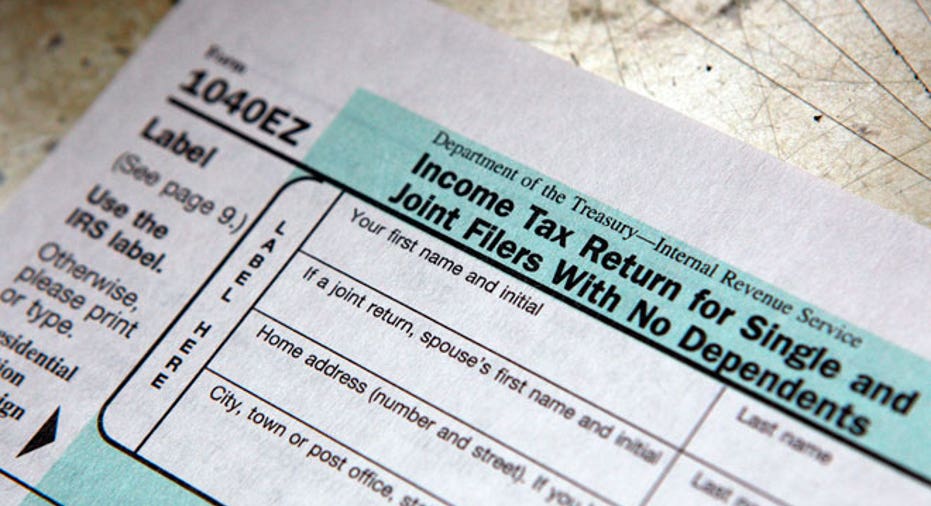Not Going to Make the Tax Deadline? Here’s What to Do

The clock is ticking for last-minute taxpayers to file their returns before midnight on April 15.
“The worst thing you can do right now is panic,” says Craig Smith, an enrolled agent in Newport Beach, Calif. “There are options you can take to avoid hefty fees and finding yourself in trouble with the IRS.”
If you are owed a refund, the IRS will not charge any penalties or interest for filing after the deadline, but you should still file your return -- refunds not claimed within three years can be forfeited.
If you aren’t going to make the deadline, take these steps to minimize the repercussions:
File, Even if You Can’t Pay. The IRS can assess penalties for failing to file a tax return and for not paying taxes, but the first tends to be a lot higher than the latter, according to Smith.
The late-filing penalty is 5% of the unpaid bill each month up to 25% of the total outstanding tax liability while the failure-to-pay penalty is one-half of 1% of the unpaid taxes.
“Do not not file. Come hell or high waters, file the return or an extension, don’t get hit with that penalty,” Smtih says.
File an Extension. If you cannot submit your tax returns by midnight on April 15, you can request a six-month extension by filling out Form 4868, Application for Automatic Extension of Time To File U.S. Individual Income Tax Return. You can fill out the form online or mail it in, but it also has the April 15 deadline.
Filing an extension gives you more time to submit your return and avoid the late-filing penalty, but it does not grant more time to pay your bill. The IRS says it expects to receive 12 million extension forms this tax season.
“Even if you file an extension you have to pay your tax, the extension only applies to the paperwork. Make the best estimate of what you will pay and send in a check to avoid the late-payment penalties,” advises Smith.
Don’t worry about overpaying, he says, you can get your money back when finally submitting a return.
Pay What You Can. If you can’t afford your total tax bill, Smith recommends paying what you can to avoid added interest on your outstanding debt.
“If you owe $5,000 and send in a check for $2,500, the IRS will send you a bill saying you still owe $2,500 but they will calculate the late-payment interest on the remaining $2,500 which will help you in the long run.”
Request to Make Installment Payments. If you can’t afford your tax liability, and it’s less than $50,000, Smith advises filing Form 9465, to request making installment payments. The form asks for your personal information, how much you owe and how much you can pay over a set period of time.
“If you owe less than $25,000 and your re-payment period takes less than 72 months, it’s a pretty safe bet the IRS will accept the payment plan.” You can set up an automatic payment system to skip having to write a check every month.
If you owe more than $50,000 and want to set up installment payments, Smith says the process will take longer as the IRS will require more documentation. “They will want to see financial statements that show what is coming in and what is coming out to make sure the plan is valid.”



















